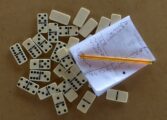Spiritual books have been a source of inspiration, guidance, and solace for many people throughout history

They provide insights into the deeper meaning of life, offer practices to cultivate inner peace and self-awareness, and facilitate personal growth and spiritual development. In this article, we will explore the world of spiritual books, their significance, and how they have evolved over time.
Introduction to Spiritual Books
Spiritual books encompass a wide range of genres, including philosophy, religion, self-help, personal growth, and mindfulness. They are written by authors from various traditions and backgrounds, each offering their unique perspectives on spirituality. These books aim to explore the mysteries of existence, examine the nature of consciousness, and provide tools for living a more meaningful and fulfilling life.
Whether you are new to the concept of spirituality or have been on a spiritual path for years, spiritual books can be a valuable source of knowledge, inspiration, and support. They can offer guidance in times of uncertainty, deepen your understanding of spiritual principles, and provide practical insights and techniques for personal transformation.
Historical Evolution of Spiritual Books

The history of spiritual books dates back to ancient civilizations, where spiritual teachings were often passed down orally or through sacred texts. These texts served as a foundation for religious beliefs and practices, offering guidance on morality, ethics, and the nature of the divine. Examples of such texts include the Vedas in Hinduism, the Bible in Christianity, and the Quran in Islam.
During the Renaissance period, mystical and esoteric traditions gained popularity, leading to the emergence of new spiritual writings. Figures such as Hermes Trismegistus, Paracelsus, and Giordano Bruno contributed to the development of hermeticism, alchemy, and occultism. Their writings explored the hidden realms of the universe, the secrets of the human soul, and the interconnectedness of all things.
In the 19th and 20th centuries, the influence of Eastern philosophy and spirituality began to spread to the West. Translations of ancient texts such as the Bhagavad Gita, the Tao Te Ching, and the teachings of Zen Buddhism became widely available. Spiritual masters like Paramahansa Yogananda, Ramana Maharshi, and Jiddu Krishnamurti gained a following, and their teachings were documented in books that introduced Western audiences to Eastern spiritual wisdom.
Contemporary spiritual books continue to evolve, reflecting the changing needs and interests of readers. Authors such as Eckhart Tolle, Deepak Chopra, and Marianne Williamson have gained popularity for their works on mindfulness, consciousness, and the power of the present moment. The rise of the internet has also made it easier for spiritual teachers and authors to share their insights through blogs, e-books, and online courses.
The featured snippet: A Guide to Spiritual Books
If you are looking to explore the world of spiritual books, here is a guide to help you get started:
1. Define your interests and intentions: Before diving into the vast realm of spiritual books, take some time to reflect on your interests and what you hope to gain from reading. Are you interested in a specific religious tradition, mindfulness practices, or personal growth? Clarifying your intentions will help you narrow down your search and find books that resonate with you.
2. Research reputable authors and publishers: When it comes to spiritual books, it is essential to seek wisdom from reliable sources. Research authors and publishers known for their expertise and integrity in the field of spirituality. Look for recommendations from trusted teachers, spiritual communities, or online forums.
3. Explore different genres and traditions: Spiritual books cover a wide range of topics and perspectives. Don’t limit yourself to a single genre or tradition. Explore different traditions, such as Buddhism, Hinduism, Sufism, or indigenous wisdom teachings. Likewise, explore different genres, including memoirs, poetry, philosophy, and self-help. Each offers unique insights and perspectives.
4. Read reviews and summaries: Reading reviews and summaries can give you a sense of the book’s content and style. Look for reviews that resonate with your interests and intentions. Pay attention to how the book is described and the experiences readers have had with it. This can help you determine if a particular book is what you are looking for.
5. Follow your intuition: Ultimately, trust your intuition when selecting spiritual books. Listen to your inner guidance and allow yourself to be drawn to the books that resonate with you. Sometimes, a book may find its way into your hands at the perfect time, offering exactly what you need at that moment.
Conclusion
Spiritual books play a vital role in personal growth, self-discovery, and the exploration of the profound aspects of life. Whether you are seeking guidance, inspiration, or practical techniques for spiritual development, these books have the power to transform your perspective and enrich your journey. By delving into the teachings and insights of spiritual wisdom, you can nurture a deeper connection to yourself, others, and the mysteries of the universe. So, take a step into the world of spiritual books and embark on a journey of self-discovery and spiritual awakening.
















































